If you think that once a fence is put in the ground, all you have to do is watch it sit there, then think again! Depending on the construction of your fence and the materials it’s built out of, it could fall victim to rust and rot. Luckily, there are several steps you can take to prevent your fence from falling to pieces and ways to fix it if it starts to show signs of wear and tear.
In this article, we provide maintenance tips for five commonly used fence materials. Let’s dive in!
Wood
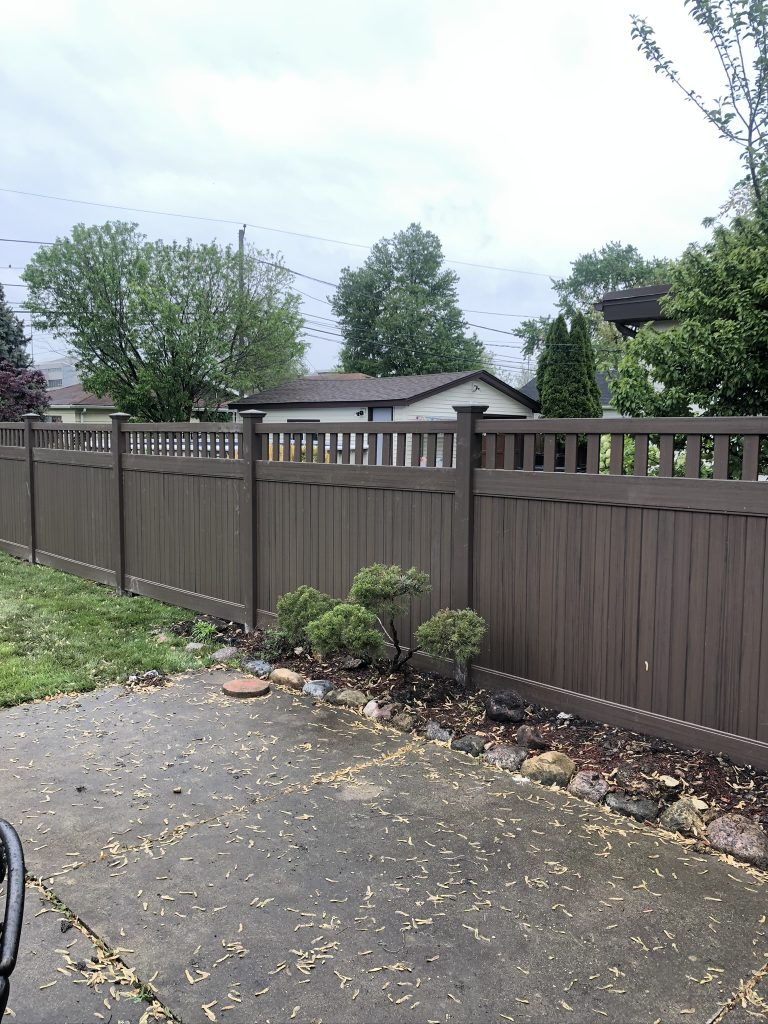
If you grew up with a wood fence, you’re probably already familiar with the dangers of rot. To keep your stunning wood fence from disintegrating into a pile of compost, we recommend sealing or staining it every 2-3 years.
If you notice a build up of dirt or mildew, simply clean it off by gently scrubbing your fence with warm, soapy water. Ensuring proper drainage will also help prevent boards from rotting.
However, the best way to prevent rot proactively is to select wood that’s weather resistant and not subject to decay. Red Cedar, for example, is rich in natural oils, making it resistant to rot!
Steel
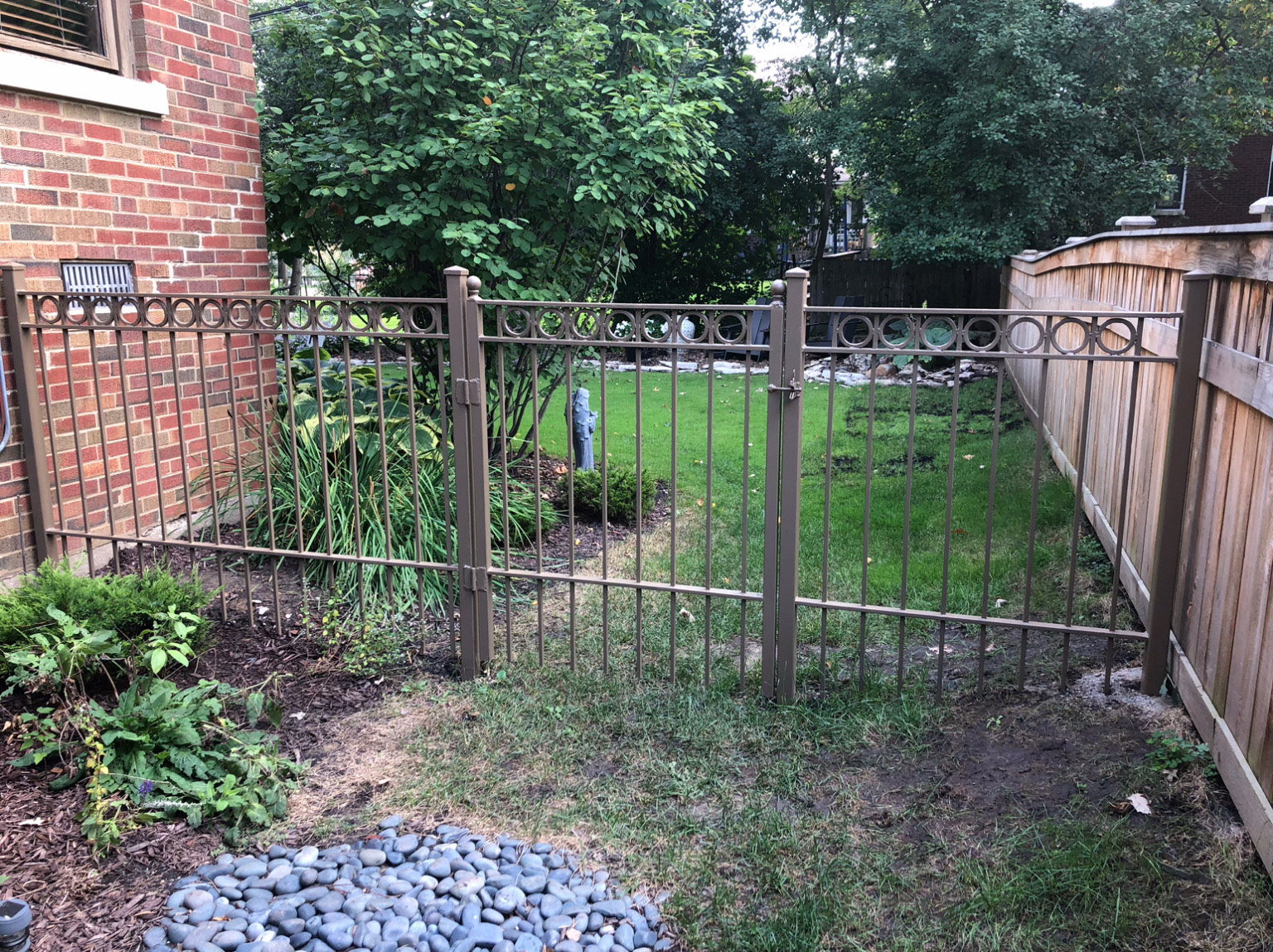
Look for rust spots. If you find areas that look red and corrosive, you can easily sand them down using 320 grit or higher sandpaper and then apply rust-resistant paint to prevent them from growing larger. Rust most commonly forms around welds and joints, so make sure to double-check areas where metal pieces meet.
To prevent rust from forming in the first place, ensure your yard has proper drainage to prevent water from puddling at the base of the fence. Applying a protective coating every few years might also be a good idea. Protective enamels, epoxy-based paints, and galvanized zinc coatings are all great options to protect against rust and corrosion.
Aluminum
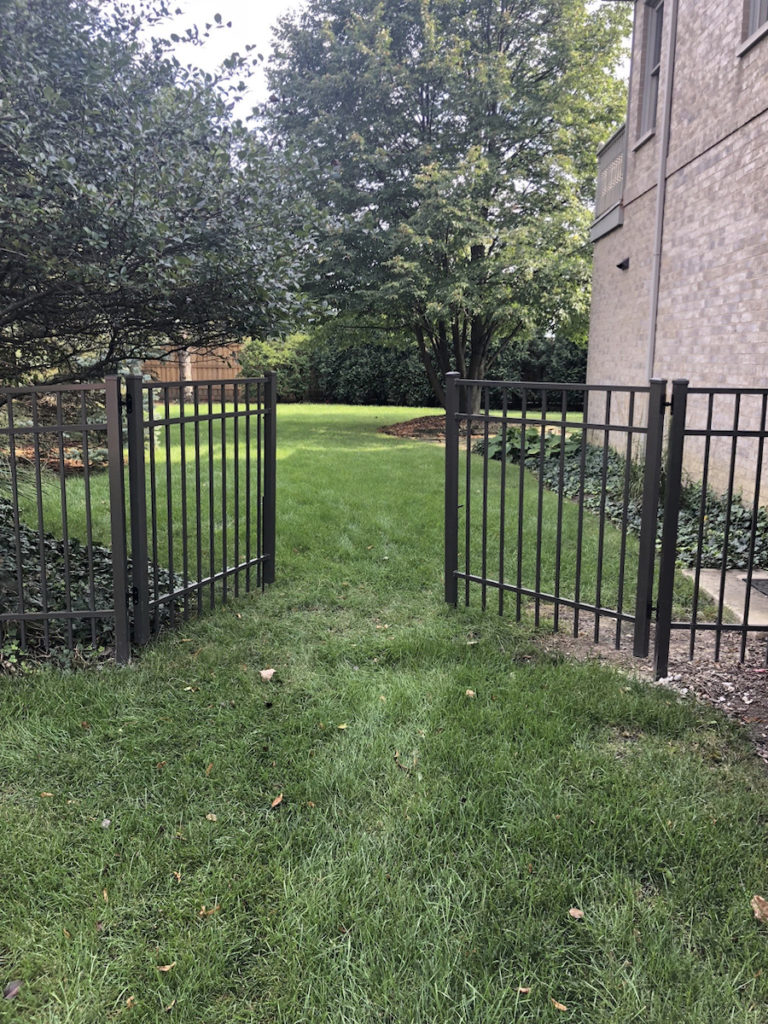
Unlike steel, aluminum doesn’t rust when exposed to the elements, making it a great choice for fencing material. However, it can still corrode, which is why we recommend regularly hosing down aluminum fences to prevent the accumulation of dirt and debris and trimming plants in the immediate vicinity to keep them from scratching your fence.
Additionally, if your fence has a built-in gate, you’ll want to lubricate gate hinges and locks annually to keep them working smoothly.
Vinyl
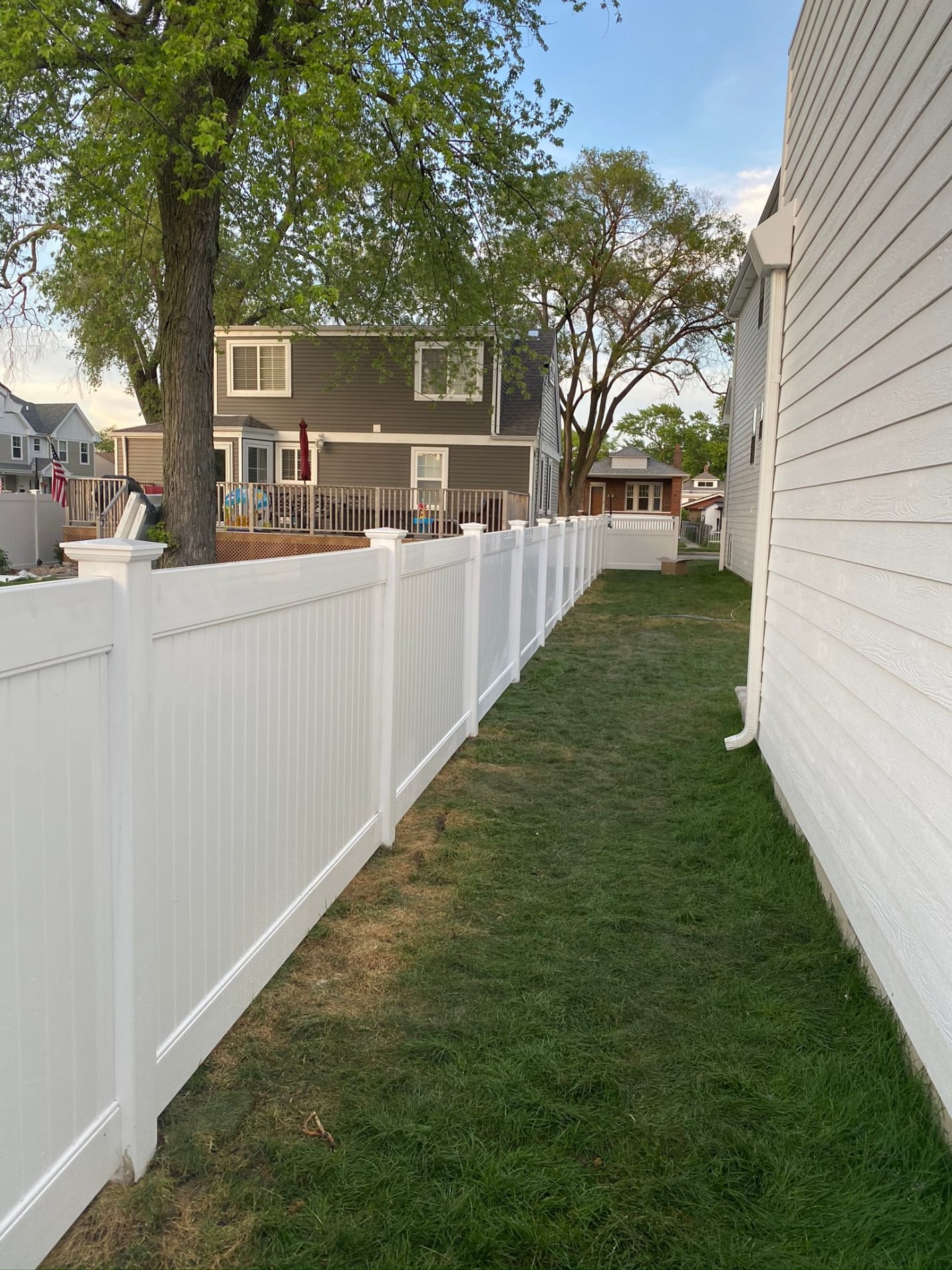
You can prevent damage to a vinyl fence by keeping it free from contaminants. We recommend washing vinyl fences with a hose or pressure washer to remove dirt and stains. For tougher stains, like mildew or algae, use a non-abrasive cleaner.
Regularly inspect your fence for cracks or damage, and replace panels or posts as needed.
Also avoid placing heavy objects or climbing plants on the fence, as this could lead to warping or bending.
Maintenance Free Composite
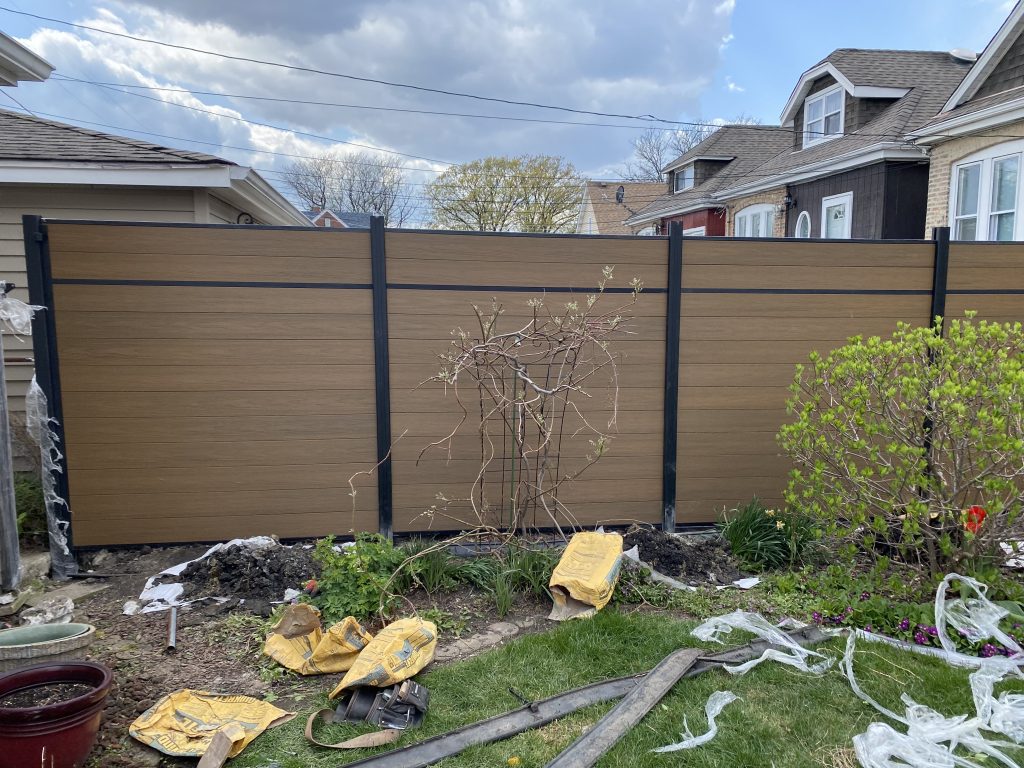
If you don’t want to worry about maintaining a fence, try our maintenance-free composite option! Bespoke offers a no-maintenance composite fence featuring composite boards with a powder-coated aluminum frame to prevent rust and rot. The composite boards eliminate the need for staining or sanding, while their wood grain texture and dark color blend a naturalistic appearance with modern style. This fence style is even more durable than vinyl!
Conclusion
The best way to enjoy a lasting fence is to build it right the first time. This means working with a trusted contractor who uses top-quality building materials.
Bespoke Fence is Chicago’s #1 most trusted installer.
